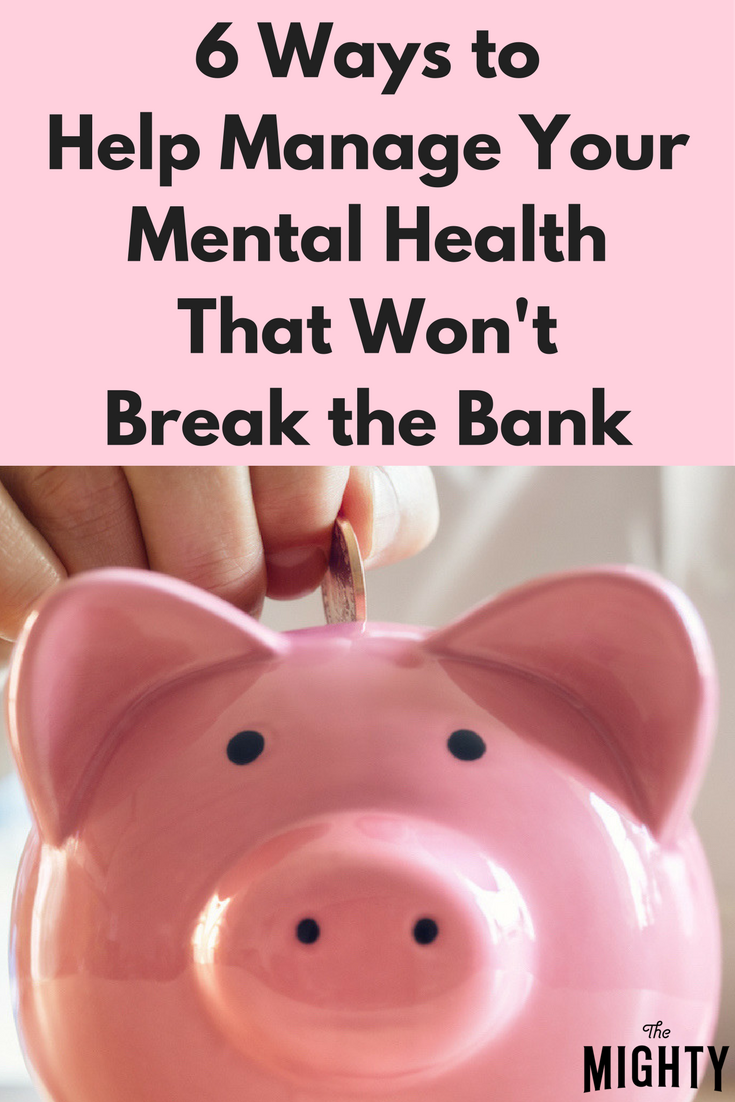I’ve been in and out of therapy most of my life. And now that I’m an “adult,” I have to deal with the financial reality that my mental health comes with: treating my mind is expensive! You see, I’ve dealt with anxiety since I was a little kid and was more recently diagnosed as bipolar 2. I have to see a psychiatrist, take medications, alter my daily life to accommodate lots of self-care, and (in theory) see a therapist.
The therapist became my trickiest problem to solve. I’m already spending several hundred dollars out of pocket each month because my “grown up” health insurance plan is a high deductible one (meaning I’m responsible for all costs until I spend a certain amount). Traditional therapists that were recommended to me were going to cost me another $120/session out of pocket when run through my insurance.
I’m just not making enough money to add an additional $480/month (at minimum) to my mental health care. And I’m not alone here — financial barriers are one of the top reasons people skip mental health care all together. According to the National Alliance on Mental Illness about 1 in 5 adults in the US experience some form of mental illness, and only 41 percent of these adults get treatment!
Mental health treatment needs to be more affordable and accessible, and it can be very overwhelming to figure out what to do to take care of your mental health when all of the traditional services are out of your price range. I went several months after my bipolar diagnosis without therapy, but I did a lot of research on/tested out what I could do on my own to help myself at a price I can afford. Here are my suggestions to help manage your mental health that won’t break the bank:
1. Cut out booze/caffeine/sugar.
I didn’t say these suggestions were going to be easy-peasy, but this one really is a game changer. Alcohol is a depressant and if you are on any sort of medication for your mind, you are more than likely reducing the effectiveness of the meds every time you imbibe. Caffeine and sugar are stimulants that can agitate your prone-to-anxiety mind.
2. Eat well/move your body/sleep.
What does the body good also benefits your mind. If you tend to comfort yourself with food, it helps to start out small instead of overhauling your entire diet. Work towards moving your body every day — even if it’s just taking a walk. Make sleep a top priority — everything else can wait. Your body needs to be well maintained to be healthy physically and mentally.
3. Meditation/yoga.
Learning to focus on your breath is super helpful when your mind is going haywire. Mindfulness is the key to learning to use your breath in these instances and meditation and yoga are the tolls to teach you this skill. Search the internet for guided meditations if your new to meditation, or start taking some yoga classes. Vinyasa yoga is especially good for teaching you to link movement and breath.
4. Get outside and absorb some sunlight.
Ever heard of seasonal affective disorder? Our bodies can literally get more depressed when it doesn’t get enough vitamin D. And when we are anxious we tend to hide inside and stick to the lights pouring from our electronic screens. Get outside, even for five minutes. Sit in the sun, walk around the block, read a book on a park bench. The vitamin D, fresh air and
change of scenery will do wonders for your mind.
5. Quit that job or ask for more support.
I had to quit my traditional corporate job in order to take care of my mind. Not everyone has to make this extreme of a change, but our jobs tend to be a pretty high source of stress for a lot of people. Take a look at why your job is stressing you out and seek out what you can do. Maybe you can ask for accommodations, start applying to jobs that fit your needs more or maybe you just need to take a mental health day.
If your job is not the cause of your stress, I encourage you to just ask for more help. Stop trying to make everything work on your own. Ask for help with the chores, errands, kids. Or even just ask for someone to let you vent to them.
6. Online support.
There are now a lot of therapists, social workers and life coaches offering services online at a much more affordable price compared to traditional therapy sessions. I have an online therapist now and it has been an amazing experience for me.
There are also a lot of online chat forums that are free for people to get instant support. Most of the time you’ll talk with someone who have gone through what you are experiencing.
If you or someone you know needs help, visit our suicide prevention resources page.
If you need support right now, call the National Suicide Prevention Lifeline at 1-800-273-8255, the Trevor Project at 1-866-488-7386 or text “HOME” to 741-741. Head here for a list of crisis centers around the world.
Thinkstock photo via BrianAJackson


